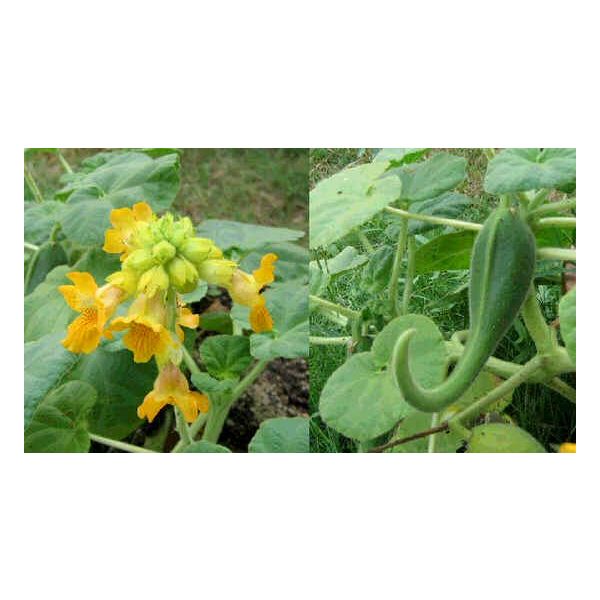Ibicella Lutea Seeds (Devil's Claws)
Ibicella Lutea Seeds (Devil's Claws)
If you live in an area that has hot Summers, expect the plants to be at least a meter across.

Delivery
All orders shipped with UPS Express.
Always free shipping for orders over US $250.
All orders are shipped with a UPS tracking number.
Returns
Items returned within 14 days of their original shipment date in same as new condition will be eligible for a full refund or store credit.
Refunds will be charged back to the original form of payment used for purchase.
Customer is responsible for shipping charges when making returns and shipping/handling fees of original purchase is non-refundable.
All sale items are final purchases.
Help
Give us a shout if you have any other questions and/or concerns.
Email: contact@domain.com
Phone: +1 (23) 456 789
Availability: Out of stock
SKU
Ibicella Lutea
Ibicella lutea, also named Yellowflower Devil's claw, Elephant tusks, Goat head, Unicorn plant, is an annual carnivorous plant most people can grow like normal garden plants. These plants are nasty. The popular name Devil's Claw understates the features of Ibicella lutea. It is native and cultivated for food in several countries of South America, from Brazil to Argentina. Ibicella plants get big. If you live in an area that has hot Summers, expect the plants to be at least a meter across.
Ibicella developes fleshy stems bearing large, soft, greyish-green, somewhat hairy, heart-shaped leaves. The leaves and stems are covered with a resinous slime that you can't easily wash off. It bears in Spring and Summer good sized golden yellow flaring trumpets, up to 7-10 flowers. The Ibicella flower has some bright orange spotted colouring on a golden-yellow background.
The flowers are followed by an abundance of small fruit; indeed the plant is grown for these in its homeland. The plants like a long growing season. If your season is too short, they will not produce mature fruit. Ibicella lutea is also known for its outrageous seed pods.
Ibicella lutea, is classed as quasi-carnivorous. The smell probably attracts insects such as the small flies, gnats, and beetles that accumulate on the leaves. The plant doesn't produce digestive enzymes but it does benefit from the rotting insects. The slime could easily be a predator defense.
Hardiness zone 11, (4øC/40øF) in Winter. Grow the plants like you would any long growing season plant in your area. The main requirement is full sun and hot weather. The full sun and very warm location are especially important if you live in a location with a short growing season. Regular tap water is fine. Devil?s Claw prefers to dry out between watering.
Ibicella should be planted in a garden or a very large pot. The larger the pot, the larger your plant will be. It is easy to grow in well-drained soil with a little compost added for best show. No special soil is required. Fertilizers are not required, but probably would encourage vigorous growth.
| Common name | Devil's Claws |
|---|---|
| Species | Ibicella lutea |
| Germination | First, scarify the seeds, then placed in warm water, and allowed to stand overnight. The seed should be planted, 1 cm deep in a rich, sandy soil, in very early Spring, to give the plant plenty of time to fully mature the seed pods for your next-season seeds, before the cooler times of mid-autumn approach. Warm conditions are needed for germination, around 21øC. Germination usually takes 7-14 days. Germination can take longer, don't give up. |
| Scarification / Stratification | Seed coats may be so hard that they are impermeable to water. They need to be scratched or broken using a knife or sandpaper, in order to germinate. Chip the seeds with a sharp knife or make a few swipes with a sharp edged file or use sandpaper to allow moisture being more readily absorbed. |
| Price View | Price Range |

